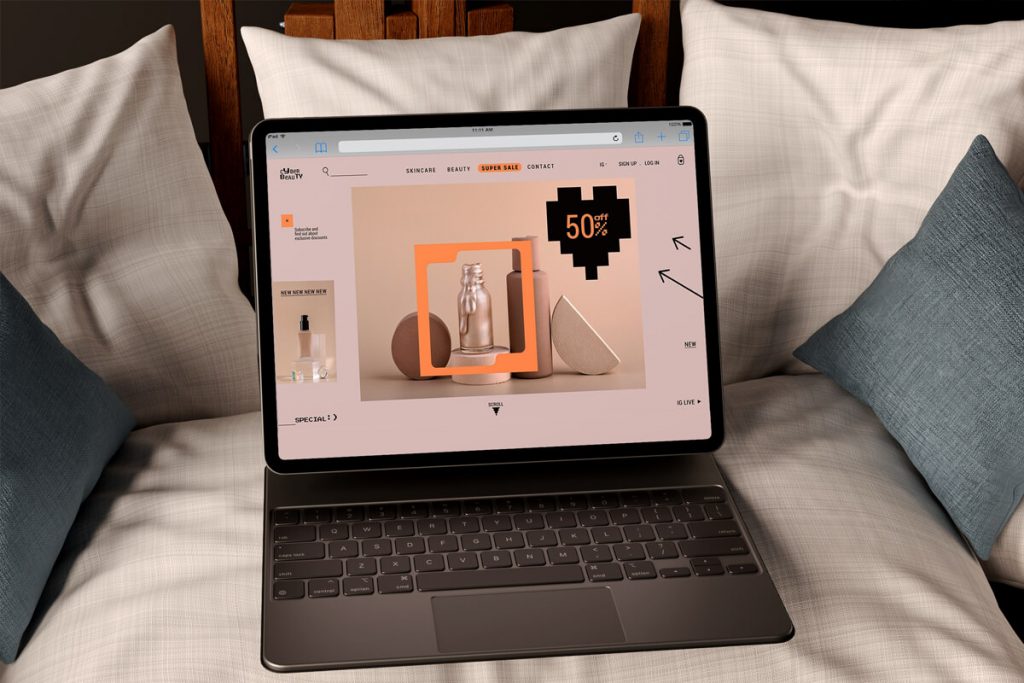
Top 10 Most Powerful Shopper Psychology Insights for 2025
Nowadays, getting someone to click “add to cart” isn’t just about flashy product photos or catchy headlines. It’s about understanding why they buy, when they buy, and what influences buying decisions on a psychological level. That’s where shopper psychology comes into play.
If you’re running an e-commerce business or leading a marketing team, the days of “spray and pray” tactics are over. In 2025, consumers are more discerning, more intentional, and way more aware of your marketing tactics. Let’s break down the latest consumer behavior insights and see how you can actually use marketing psychology to drive real revenue growth.
Emotional Triggers Still Reign Supreme
We like to believe we’re rational creatures. But when it comes to making purchases, especially online, emotions actually drive the decision. As digital marketers, we’ve seen single product descriptions infused with the right emotional cues outperform a tech-heavy landing page 10x over.
Whether it’s the joy of gifting, the comfort of nostalgia, or the fear of missing out (FOMO), emotional marketing creates stronger connections. A few examples:
- Nostalgia: Think “90s baby” apparel or vintage cereal box designs on mugs.
- Trust & Safety: Words like “hypoallergenic,” “made in the USA,” and “100% natural” still move the needle.
- Pride & Empowerment: Brands like Dove and Nike have mastered this with messaging that makes shoppers feel seen.
The shopper psychology here is simple: when people feel something, they buy.
Tip: Use Emotional Anchors in Your Copy
- Open with a relatable story.
- Use language that evokes feeling: “soft as your childhood blanket,” or “finally, skincare that gets your skin.”
- Align your email marketing subject lines with your emotional narrative.
Trust and Transparency Matter More Than Ever
In the age of data breaches and misleading product listings, consumers are increasingly suspicious. According to Klaviyo’s recent shopper behavior study, 62% of consumers say clear, honest pricing is more important than ever.
We have all fallen victim to shady business models – I remember a time when I ordered a “free trial” of a teeth-whitening kit online. Buried in the fine print was a subscription clause. I was charged $79 the following month—and it took three emails and a phone call to cancel. Never again.
Believe it or not, consumers have long memories. A bad experience with your business can turn a customer away forever.
You Can Build Trust With:
- Upfront pricing (no hidden fees or fine print).
- Easy returns and clear refund policies.
- Product reviews and user-generated content.
- Real customer photos over overly-polished stock images.
If you’re wondering what influences buying decisions in 2025, trust is at the top of the list.
Shoppers Are No Longer Rushing to Beat Price Increases
For years, marketers leaned heavily into urgency: “Prices go up tomorrow!” “Last chance!” But according to Klaviyo, consumers are wising up. Fewer shoppers are rushing to buy before prices increase.
They’re pausing. They’re questioning if it’s really their last chance.
As a marketer, this means we need to shift from fake scarcity to genuine value. Don’t just say something is limited—show why. Maybe it’s handmade. Maybe it’s a small batch. Maybe it’s seasonal.
Actionable Shift:
- Replace “Buy Now Before Price Jumps” with “This small batch is hand-poured and won’t return until fall!”
- Show behind-the-scenes videos that prove your supply limitations.
- Lean into transparency—not gimmicks.
The Rise of Selective Shopping
Selective shopping is the new impulse buying.
Consumers are buying less—but better quality products. They want things that align with their values, last longer, and feel more personal. This is particularly true in non-essential categories like fashion, home décor, and beauty.

How to Appeal to the Selective Shopper:
- Highlight quality over quantity.
- Use comparison charts to show durability or uniqueness.
- Promote customer testimonials about the long-term value of your product.
I personally recently chose a $90 ethically-made sweater over a $30 fast fashion option. Why? Because the brand showed why it was better, why it would last longer, and that their business model aligned with my personal values.
This is marketing psychology in motion.
Gen Z Is Changing the Game
Gen Z is not just the future—they’re the now of shopper psychology. These digital natives are coming of age with different expectations around shopping, marketing, and brand loyalty.
Key Traits of Gen Z Shoppers:
- Hyper-awareness of marketing: They spot inauthenticity fast.
- Social commerce savvy: TikTok Shop, Instagram Reels, and influencer recommendations are powerful triggers.
- Cause-driven: Gen Z cares about sustainability, inclusivity, and social impact.
If you’re not showing up on social media in a real, relatable way—you’re basically invisible to Gen Z. That means:
- Ditch overly curated feeds.
- Embrace lo-fi, authentic content.
- Partner with micro-influencers who actually use your product.
Gen Z is often selective, but they’re also highly loyal to brands they trust. Nail the first impression, and they’ll shout you out for free.
The "Made in America" Effect
American-made products are having a moment again. Whether it’s due to rising global instability with upcoming U.S. tariffs, quality control concerns, or a growing interest in supporting local economies, “Made in the USA” is an easy conversion-booster.
More than 60% of shoppers say they’re willing to pay more for products manufactured domestically. That’s a huge deal if you’re a U.S.-based brand.
How to Leverage This:
- Include “Made in the USA” badges on your product pages.
- Talk about your production process in email marketing and social.
- Use storytelling to introduce the makers behind the product.
These messages resonate. It’s a simple way to reinforce trust and value.
Personalization: Make It Useful, Not Creepy
It’s been common knowledge for a while that personalization increases conversion rates—but in the age of AI, it needs to feel human. Shoppers want relevance, not just algorithms. Additionally, while AI is helpful, shoppers are well aware when AI is being utilized.
Instead of just dropping someone’s first name in an email subject line, use behavioral data to recommend:
- Complementary items.
- Refill or restock reminders.
- Birthday or milestone offers.
Avoid This:
- Overtracking (like retargeting people who already bought the product).
- Recommending irrelevant items (e.g., cat toys to someone who bought dog food).
Make your brand’s personalization measures feel like a helpful concierge, not Big Brother.
Visual & Sensory Psychology
Design matters. A lot.
Colors, fonts, layout, and even white space play a role in whether a shopper buys or bounces. There’s a reason high-end brands use serif fonts and minimalist product photography.
Red creates urgency. Blue builds trust. Green evokes health and eco-consciousness. Minimalistic site layouts make the shopping experience feel more upscale and quality.
Quick Wins:
- Split test CTA button colors.
- Ensure your mobile site loads fast and clean.
- Use video to trigger sensory cues like texture, movement, and sound.
- Only use visual features that are needed. What visuals you do feature, make sure they look aesthetically pleasing – the less clutter, the better.

This is subtle shopper psychology at work—but it adds up. Branding, packaging, and web design aren’t just background—they’re the product experience. If it doesn’t look good, it won’t sell, no matter how great the product or service is.
How You Can Help Your Brand:
- Aesthetic = Trust: Most modern shoppers equate good web design with credibility. If your fonts, color palette, or layout look super busy, customers might bounce.
- Micro-vibes matter: Cottagecore, minimalist, coquette, Y2K—whatever trendy vibe is popular at the moment, shoppers expect brands to speak their visual language.
Shoppers Care About Ethics and Sustainability
Value-based marketing is no longer optional. Consumers are aligning their spending with their values more than ever before. In fact, younger buyers often check a brand’s ethics before even considering a purchase.
This Includes:
- Eco-friendly packaging and practices: Sustainable materials, recyclable packaging, and reducing waste are key factors in their decision-making process.
- Fair labor practices: Ethical sourcing and ensuring that workers are paid fairly and treated well matter deeply to this generation.
- Diversity and inclusion: Whether it’s in your advertising, your product lines, or your hiring practices, modern shoppers expect brands to reflect the diverse world they live in. They want to see authentic representation of race, gender, and culture in your messaging.
You don’t need to be perfect—you just need to be genuine. Shoppers can sniff out inauthenticity from a mile away.
The Power of Predictive Data
With platforms like Google Analytics 4, you can now predict behavior more accurately than ever. This means:
- Knowing when a customer is likely to churn.
- Recommending the right product at the right time.
- Sending emails that feel helpful, not spammy.
As a digital marketer, this is where you can really get ahead. Consumer behavior insights combined with predictive analytics give you a real competitive edge.
Be the Brand That "Gets" Your Customer
Here’s the truth: you don’t have to be the cheapest, nor do you have to be the flashiest. You just need to understand how your customer thinks. Shopper psychology isn’t about manipulation—it’s about alignment.
Understand what matters to them. Speak their language. Be transparent. Deliver value.
The brands that win in 2025 will be the ones that make buying feel good—not just necessary.
Want help integrating these strategies into your next campaign? Let’s talk. At Advertising Avenue, we specialize in turning shopper psychology from clicks to conversions, real results.


